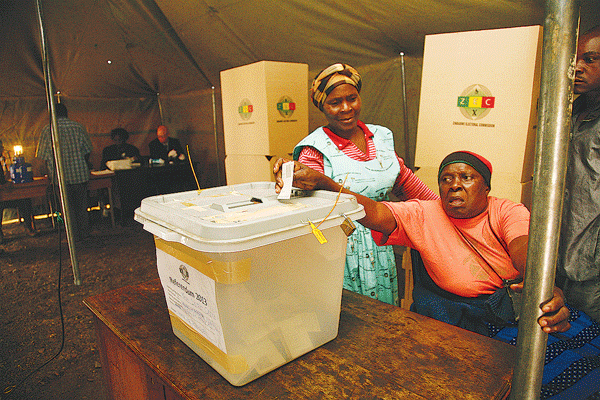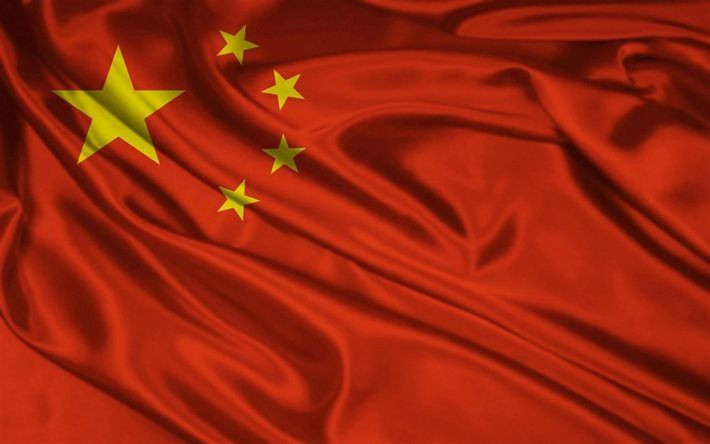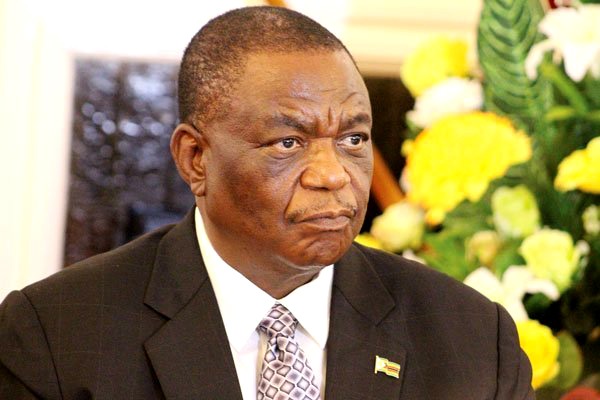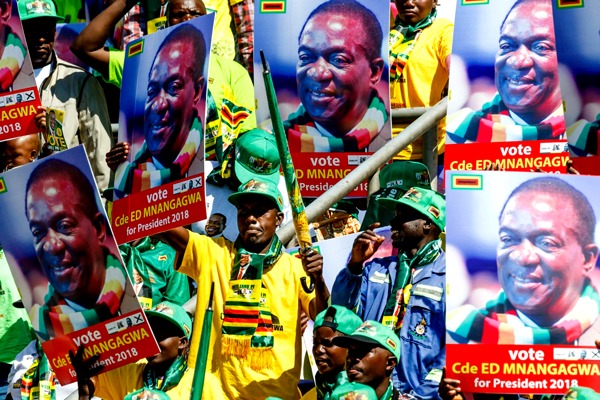
[ad_1]
BY LORRAINE MUROMO/ HARRIET CHIKANDIWA
ZIMBABWEANS in the diaspora yesterday challenged the ruling Zanu PF party to allow them to vote in the 2023 elections, saying denying them their right exposes the ruling party’s fear of losing polls.
In June, acting Zanu PF commissar Patrick Chinamasa said the country would only allow diasporans to vote if the West removed sanctions on the country.
He said Zimbabwe won’t set up election centres outside Zimbabwe during national polls unless the nation made the necessary constitutional amendments and targeted sanctions imposed on some top Zanu PF officials were removed.
Over four million Zimbabweans, according to the International Organisation for Migration (IOM), are believed to be in the diaspora.
Speaking during the Home/Kumusha /Ekhaya vote connect launch by the Election Resource Centre under the 2023 diaspora election campaign banner, Southern Africa director of Human Rights Watch Dewa Mavhinga said the ruling party should allow every Zimbabwean to vote despite their location as it was their democratic and constitutional right.
“Zanu PF is afraid that many diasporans who left are not happy with the way it has governed the country and will definitely vote for the opposition, that is why it has ensured that no one necessarily votes,” Mavhinga said.
- Chamisa under fire over US$120K donation
- Mavhunga puts DeMbare into Chibuku quarterfinals
- Pension funds bet on Cabora Bassa oilfields
- Councils defy govt fire tender directive
Keep Reading
“Diasporas remain massive injectors of foreign currency into the Zimbabwean government fiscus but it still refuses them the right to vote. It cannot have its cake and eat it.
Mavhinga said there was a lot of politicking around the issue and accused President Emmerson Mnangagwa of backpeddling on his earlier promise to let diasporans vote after a coup that ousted the late former President Robert Mugabe in 2017.
“In Zimbabwe, the challenge is that the political landscape is controlled by Zanu PF and in the 2018 elections, State machinery was used to intimidate and instil fear, therefore, voter education is important, but there is need to be alert of State manoeuvres,” he said.
Deutsch Connect founder and chief executive officer Kumbirai Chipadza said: “People should know where their bread is buttered. We contribute largely economically so we should be allowed to vote. The money we remit is a lot and it helps the government of the day.”
“Diasporans need to unite and abandon going along partisan lines. Let us not be partisan, but patriotic and once people are united, it is easier to share a common vision,” he said.
Rose Gift Foundation chief executive officer Praise Mutemavi, who is a transplant surgeon based in the United States of America, said it was time for both locals and diasporans to form a united front.
Newly-formed Patriotic Zimbabweans Party (PZP) yesterday said it would work hard to ensure diaposrans realise their dream to vote, noting that only members of the security forces, that is, police officers, prison officers are allowed to vote.
“Economically, the Zimbabwean diaspora remittances are now second to foreign direct investment in terms of driving foreign exchange inflows which saw Zimbabweans sending $1,9 billion in 2019 or 9,6% of the nation’s GDP, according to the World Bank,” PZP secretary for international relations Pishayi Muchauraya said.
He said under the current circumstances, the party had no option but to pursue the necessary legal and political steps to address this fragrant departure from the 1979 Lancaster House consensus on universal suffrage.
Opposition political parties, mainly the Nelson Chamisa-led MDC Alliance, have been calling for electoral reforms, including the diaspora vote.
Follow us on Twitter @NewsDayZimbabwe
[ad_2] Source link










